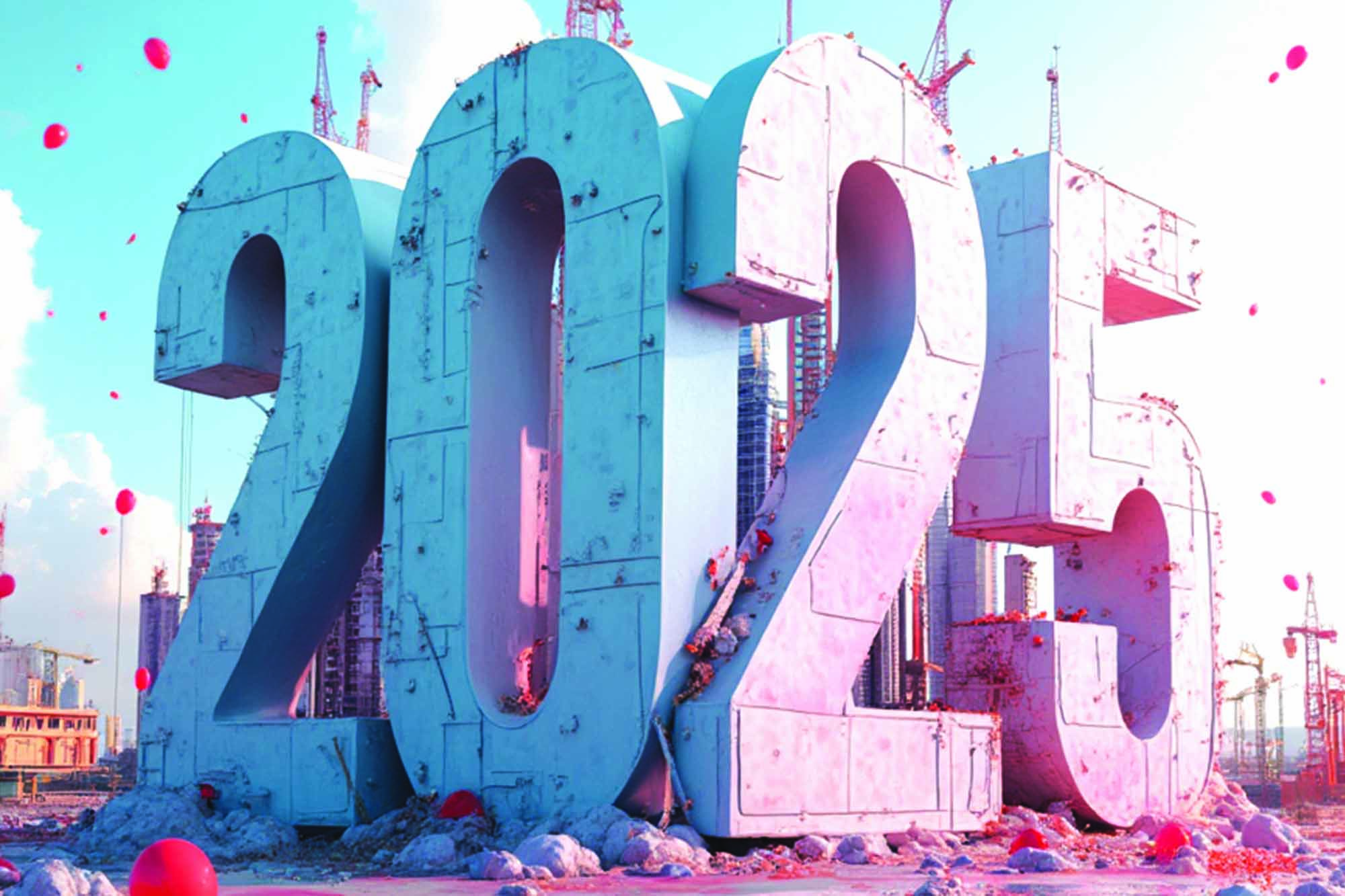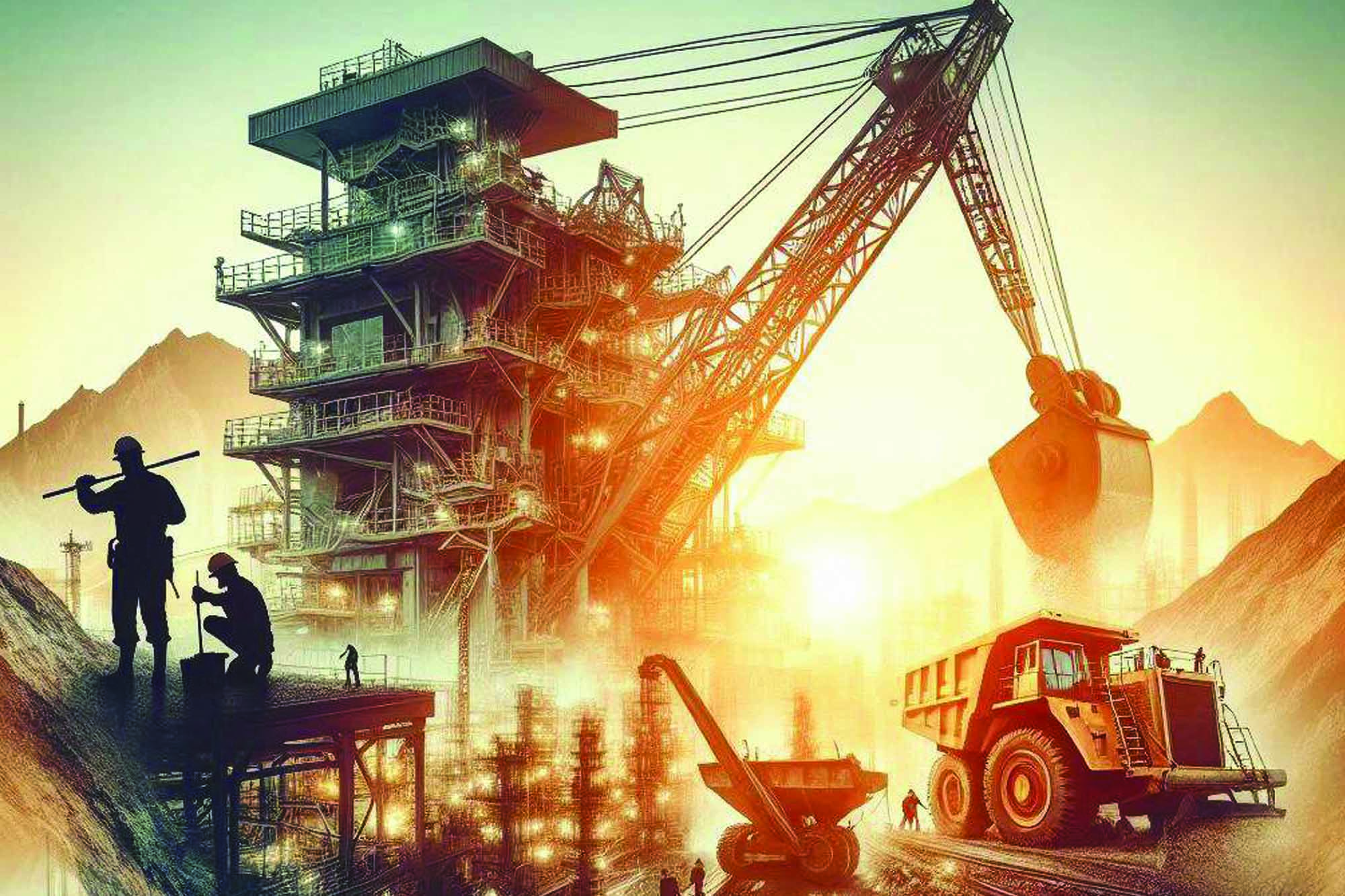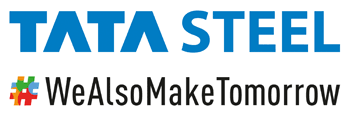Building 2025, Powered by 2024
By Staff Report | January 14, 2025 6:41 pm SHARE

The Indian construction industry, fueled by technological strides and sustainability goals, is set for a monumental leap in 2025, building on the lessons and innovations of 2024.
The Indian construction sector, a pillar of economic growth, is on the verge of a dramatic upheaval. The lessons learned innovations implemented, and problems encountered in 2024 have laid the groundwork for remarkable advancements in the years ahead. The industry is embracing change like never before, propelled by technological advancements, sustainability efforts, and shifting labour dynamics. The foundation created in 2024 paves the way for a sustainable, high-tech, and resilient construction industry that will fuel India’s goal to become a worldwide economic leader by 2030.
The construction industry in India grew significantly in 2024, with a forecast 11.2% increase to INR 25.31 trillion. Notwithstanding difficulties in certain subsectors, the construction sector grew rapidly because of government programs and rising demand for residential and commercial projects. Rising household incomes, low interest rates, especially in major cities like Delhi and Mumbai, and affordable housing programs like the Smart Cities Mission and Pradhan Mantri Awas Yojana (PMAY) all contributed to the residential sector’s continued demand. Due to infrastructure initiatives, business activity, and foreign investment, the commercial sector saw increased demand for office space and sophisticated construction technology.
Adaptability was one of the most important lessons learned in 2024. Companies had to deal with growing labour expenses, environmental issues, and material costs. However, those who embraced technical progress experienced growth in addition to survival. Automation, IoT-enabled devices, and artificial intelligence all assisted companies in increasing productivity and streamlining processes. As Tej Bhadbhade, GM Operations at Aquarius Engineers, aptly put it, “We are simplifying operations for operators and ensuring that machine owners have peace of mind by employing user-friendly interfaces and smart software solutions.”
As governmental actions like the Stage 5 pollution rules and the CPCB 4 Plus standards forced companies to reconsider their strategies, the move towards sustainability also gained prominence. The push for electric vehicles (EVs) and the electrification of construction machinery became more pronounced, as highlighted by Gurunath Kulkarni, Vice President at Baudouin India “India’s B2C market for electric construction equipment is still in its nascent stage, and it’s challenging to enter. However, we’re closely monitoring the regulatory landscape. With every new regulation, costs increase, but it’s not prohibitively expensive for customers.”
Another important happening in 2024 was the widespread adoption of modular construction techniques and the integration of renewable energy systems into infrastructure projects. The engineering consultancy sector witnessed a transformation, with companies like Tata Consulting Engineers leading by expanding into emerging sectors like advanced battery technologies and modular reactors. Amit Sharma, MD & CEO of Tata Consulting Engineers, emphasised the role of digital and AI-driven solutions, saying, “Our focus centres on expanding our global presence by delivering transformative projects that blend sustainability, innovation, and digital sophistication.”
Even with these technological strides, problems persisted. The industry remained tense due to supply chain interruptions, shifting material pricing, and ambiguity in labour regulations. Despite this, 2024 was a year in which the sector showed resiliency and flexibility.
Status quo of the market
Following a year of technical experimentation and regulatory changes, the construction industry is now adopting a hybrid strategy, combining traditional methods with state-of-the-art technologies. The industry is undergoing a paradigm transformation, from the electrification of machinery to the application of artificial intelligence in project management.
Electric and hybrid equipment are now more than a fad; they represent a true change. Companies like Liugong India are already deep into their EV offerings, with Rajdeep Mitra, GM – Sales, highlighting the rapid adoption of electric vehicles. “The transition to electric machinery offers a significant opportunity to reduce emissions and advance our path towards a zero-carbon future.” Similarly, companies like Tata Hitachi are also at the forefront of electrification, unveiling 100 percent electric machines that reduce operational costs and environmental impact.
Traditional machinery still accounts for a substantial portion of the market despite the increased emphasis on automation and electrification. For instance, according to Sanjay Kumar Agarwal, MD of Filtrec Bharat, the need for hydraulic filters for internal combustion engines (ICE) and electric vehicles (EV) is still growing. These filters are crucial in maintaining operational efficiency, regardless of the powertrain, and highlight the ongoing relevance of conventional technologies in the evolving market.
Lithium-ion batteries are also replacing conventional lead-acid batteries in access equipment, indicating a market trend towards more effective and high-performing power sources. Narasimha Jayakumar, CEO of Greaves Retail, mentions, “Lithium-ion batteries are particularly well-suited for access equipment because they support longer operational hours and reduce downtime.”
While the construction industry in India is rapidly adopting these technologies, the future also relies heavily on collaborations between the private sector and the government. The government’s push for sustainability, efficiency, and infrastructure development will continue to drive the construction sector forward.
What’s in store for the Indian construction market?
With the developments of 2024 playing a significant role, the Indian construction sector is poised for a significant shift in 2025. It will remain dominated by the focus on electrification, technology integration, and sustainability. As the industry transitions to a more technologically sophisticated, environmentally responsible, and effective future, it will encounter new opportunities and difficulties.
One of the most significant trends for 2025 will be the increased adoption of electric commercial vehicles. As companies like Propel Industries look to expand their EV portfolio, with products such as the 470 ETR for the mining and construction sectors, Siddharth Kirtane, President of EV Sales at Propel Industries, anticipates that “electric vehicles are poised to reshape the transport landscape significantly.” The growing push for green energy solutions will continue influencing purchasing decisions, especially as governments worldwide continue incentivising green technologies.
Another significant trend will be the emergence of smart construction sites driven by AI, machine learning, and the Internet of Things. IoT-enabled equipment will help companies optimise entire construction sites and monitor the operation of individual pieces of machinery. With innovations like Aquarius Engineers’ new electric boom pumps and their high-capacity batching plants, 2025 is set to be a year when construction equipment becomes increasingly autonomous, efficient, and eco-friendly.
The continuous advancement of environmentally friendly solutions, such as electric pumps and battery-operated compact excavators, is also anticipated to pick up speed in 2025. The goals of lowering emissions, operating costs, and increasing productivity will continue to be the main focus of innovations in electric construction machines by businesses like Tata Hitachi. As Siddharth Chaturvedi, GM-Marketing at Tata Hitachi, notes, “The unveiling of our electric machines is a significant step in line with the government’s push for sustainability.”
Integrating automation into the construction industry, from machinery operation to project management, will reduce manual errors, enhance efficiency, and improve safety standards. The future of construction projects will likely feature automated systems that oversee everything from supply chain logistics to the operation of construction machinery, allowing for faster, safer, and more efficient project completion.
Moreover, the expanding focus on modular construction, energy-efficient designs, and smart infrastructure will contribute to reducing the sector’s carbon footprint. The government’s continued push for infrastructure development under schemes like the National Infrastructure Pipeline will offer the industry substantial opportunities to grow and evolve.
Finally, workforce evolution will play a significant role in 2025. As technology becomes increasingly integral to construction, the skill sets required will shift. The demand for skilled workers proficient in operating advanced machinery, handling AI-driven systems, and managing digital construction platforms will rise. Companies must invest in reskilling and upskilling their workforce to stay ahead of the curve.
Increased material costs and geopolitical unpredictability may influence the pace of growth. Yet, the forecast is still optimistic, with a predicted construction output of INR 36.58 trillion by 2028, based on a CAGR of 9.6 percent.
A transformative year awaits
The Indian construction sector is set for a revolutionary year as 2025 unfolds. The innovations, difficulties, and achievements of 2024 have established a solid foundation, and the future is promising. The sector is poised to reshape its future, emphasising automation, sustainability, electrification, and digital integration. The insights obtained from the past will continue to propel decisive advancement in the years to come as the industry innovates, collaborates, and changes.
India’s construction industry is expected to experience previously unheard-of levels of growth and development in 2025. The foundation for a genuinely transformative journey ahead has been established in 2024, and the Indian construction sector is prepared to develop a brighter, greener, and more efficient future.
Cookie Consent
We use cookies to personalize your experience. By continuing to visit this website you agree to our Terms & Conditions, Privacy Policy and Cookie Policy.








































































